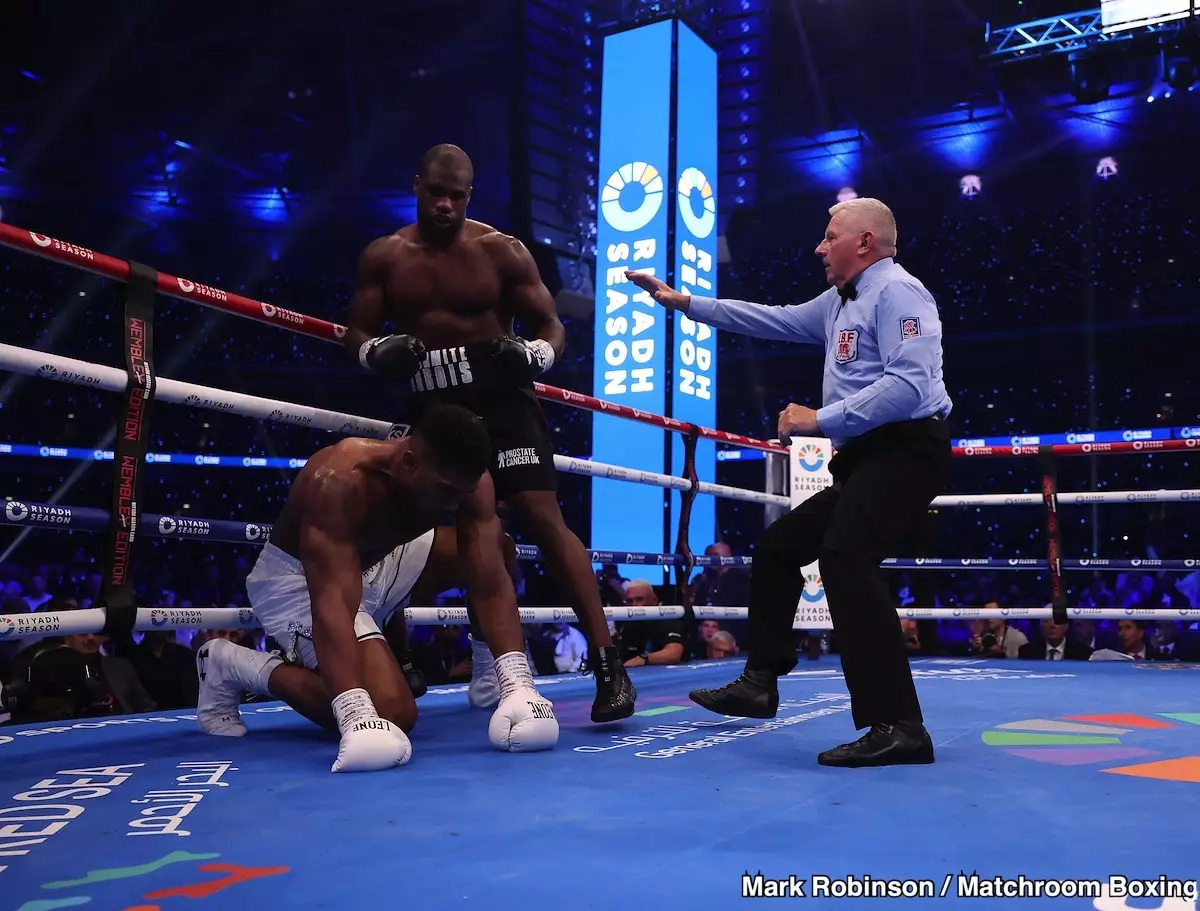Last night at Wembley Stadium, the boxing world witnessed what many are calling a seismic shift in heavyweight boxing. Anthony Joshua, once lauded as one of the elite fighters and a former two-time heavyweight champion, met a devastating defeat at the hands of Daniel Dubois, who entered the ring as a considerable underdog. The event has sparked a whirlwind of emotions and discussions surrounding Joshua’s future in the sport, urging fans and analysts alike to reconsider the trajectory of his career.
From the opening bell, the fight set a tone that would leave spectators stunned. Dubois, known for his formidable punching power, knocked Joshua down not once, but four times, culminating in the match’s stoppage in the fifth round. This outcome was shocking, especially considering Joshua’s reputation and prior success. Although he has faced adversity before—most notably against Andy Ruiz—this defeat felt notably different. It showcased a one-sided battle where Joshua, despite his resilience and determination, appeared overwhelmed against the ferocity and skill of Dubois.
Dubois, who once faced criticism regarding his mental fortitude and perceived tendency to give up, transformed that narrative through sheer display of power and strategic prowess. He efficiently utilized his right hand to score a knockdown in the opening round, setting the tone for the fight. While Joshua’s heart and tenacity were evident, continually getting back to his feet after each knockdown, the overwhelming assault from Dubois demonstrated a decline in Joshua’s punch resistance and overall ring efficacy.
The New Champion’s Journey and Future Prospects
For Daniel Dubois, this match represented a crowning achievement, signaling his readiness to challenge the upper echelons of heavyweight boxing. With this victory, Dubois ascended as a legitimate contender for the championship titans, such as Oleksandr Usyk and Tyson Fury. While his past loss to Usyk may cast shadows on his potential, the possibility of a rematch offers intriguing questions about Dubois’ growth and adaptability as a fighter. His potential bout with Tyson Fury is equally captivating, promising a clash of styles that could reshape the division.
Conversely, Joshua’s future now appears precarious. At 34 years old, questions are being raised about his capacity to reinvent himself yet again. The cycle of switching trainers and attempting to regain form can take a toll on any athlete, particularly one who has already faced significant setbacks. While his legacy as a formidable champion remains intact, the nature of this latest defeat—arguably his most severe—poses a challenge that marries anxiety and nostalgia for his former glory.
As discussions about his career trajectory intensify, the concerns regarding his long-term viability as a competitive fighter cannot be overlooked. The immediate future looks difficult, and as fans, we are left wondering: how many more comebacks can Joshua realistically muster? The heavyweight division, armed with fresh talents ready to seize their opportunities, may no longer have a place for Joshua as a predominant figure.
Wembley Stadium echoed with the sounds of an unforgettable night, not just for Dubois and his supporters, but also as a solemn reminder of the unforgiving nature of professional boxing. This evening will be remembered not only for Dubois’ spectacular rise but also for the poignant reflection on Joshua’s decline. As we contemplate this historic shift in the heavyweight hierarchy, boxing fans worldwide brace for the ramifications of this stunning upset, eagerly anticipating the next chapter for both Dubois and Joshua.

